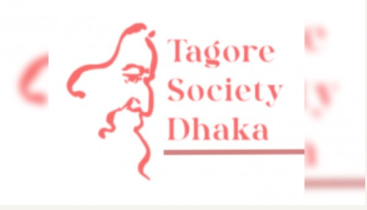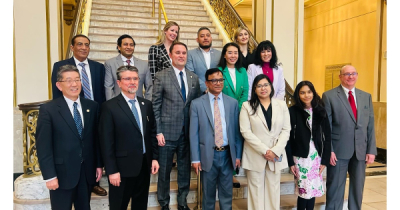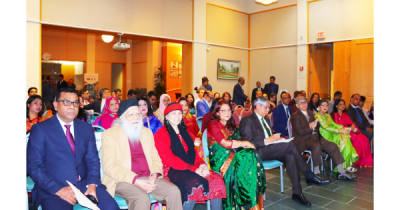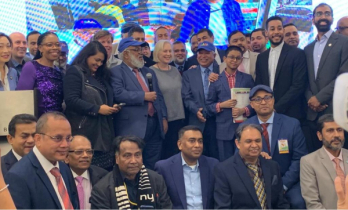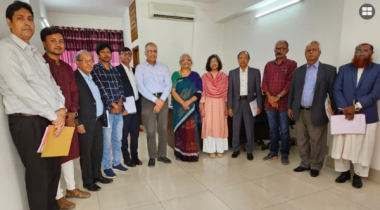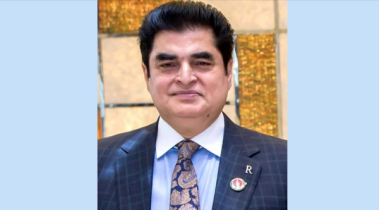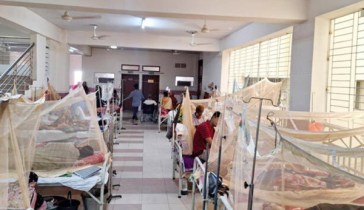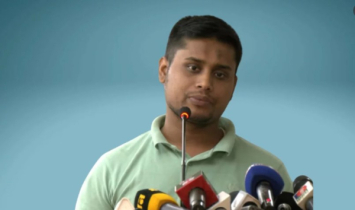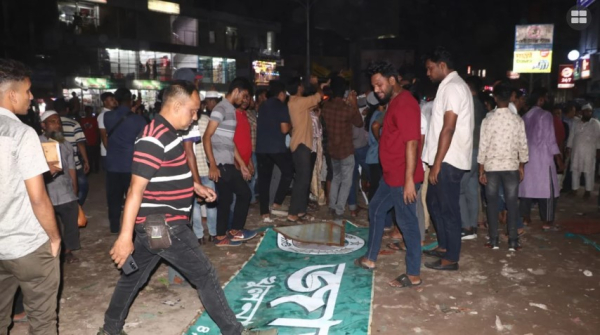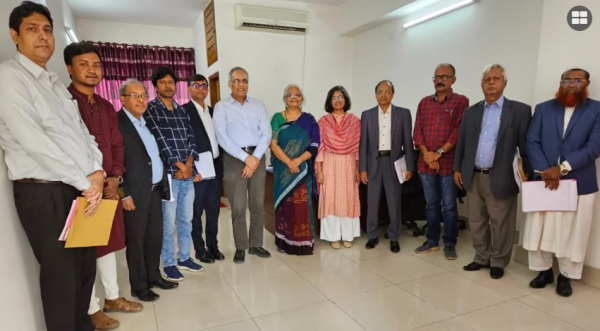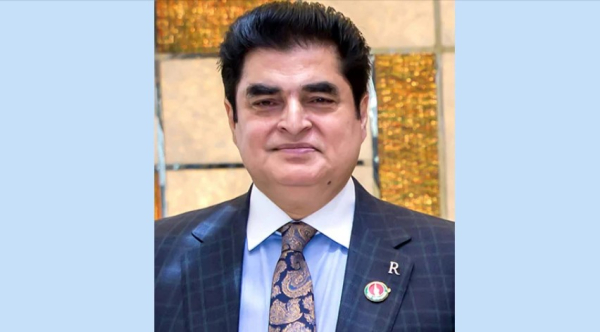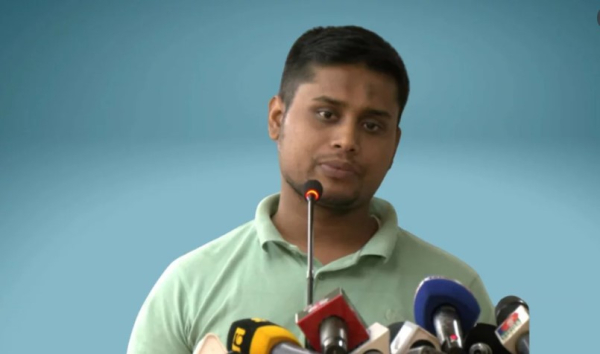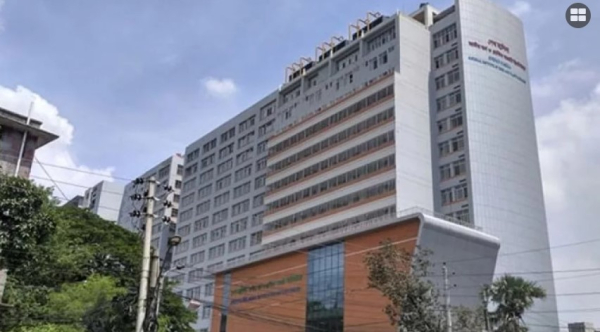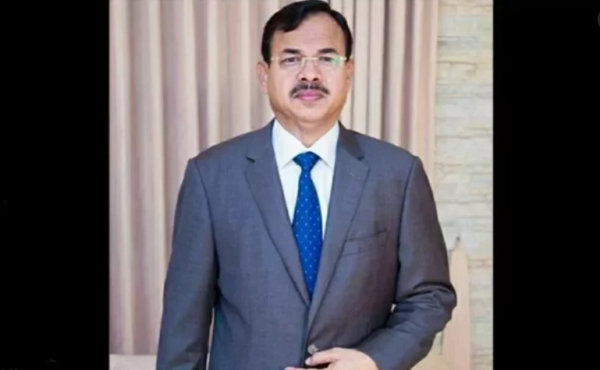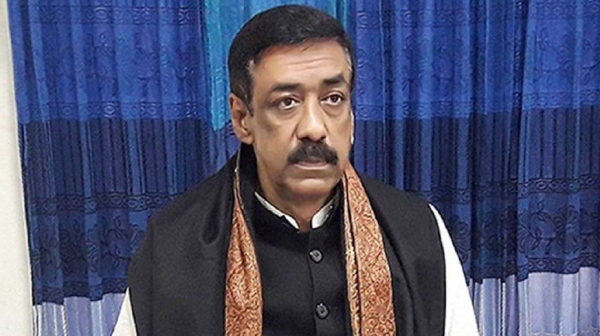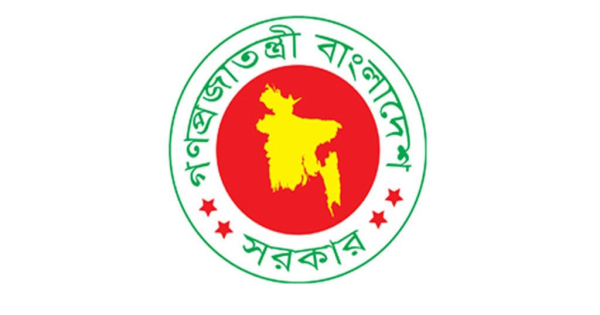Strong Tobacco Control Law a must to safeguard Public Health
Strong Tobacco Control Law a must to safeguard Public Health
 |
The public health of Bangladesh is in the twin afflictions of ongoing Covid-19 pandemic and upcoming tobacco epidemic. Only a strong tobacco control law can offer our public health much-needed protection from these two evils. Tobacco causes deaths and helps covid-19 infections spread.
According to World Health Organization (WHO), tobacco products do not only facilitate Covid-19 infection with frequent hand-to-mouth contact of users, but also increase the risk of serious illness once infected with novel coronavirus.
In Bangladesh, about 40 million adults who use tobacco products are currently at grave risk of severe coronavirus infection. This is why the time demands a time-fitting amendment of existing tobacco control law. Such recommendations have come from an august gathering of Member of Parliaments (MPs), economists, cultural figures, journalists and public health experts during a webinar titled "Covid-19 and the Need for Strong Tobacco Control Law", jointly organized by PROGGA (Knowledge for Progress) and Anti-Tobacco Media Alliance (ATMA).
During the webinar, PROGGA and ATMA raised the following demands to be included in the tobacco control law:
1. Remove the provision of “designated smoking zone” and ban smoking in all public places, work spaces, and public transports to ensure an absolute tobacco free environment; 2. Ban the display of tobacco products at points of sale;
3. Ban ‘corporate social responsibility’ activities of tobacco companies;
4. Ban the sale of single sticks and unpackaged smokeless tobacco;
5. Ban the sale and import of e-cigarettes and heated tobacco products;
6. Allow for stricter rules on packaging including increases to the size of graphic health warnings.
It was also mentioned during the event that Paraguay has also introduced complete ban on smoking in all public places, work places, and public transports. According to a John Hopkins Medicine expert, “Secondhand smoke can propel viruses into the air from the nose and throat.”
Saber Hossain Chowdhury MP, the Chairman of the Parliamentary Committee on Environment, Forestry and Climate Change, said, I completely agree with all the amendment proposals raised today. These are essential to building a tobacco-free Bangladesh. Since we have a scope to amend the Smoking and Tobacco Products Usage (Control) Act 2005, I would suggest that we replace the word "Control" with "Elimination" in the title so that it reflects the Prime Minister's vision of a tobacco-free Bangladesh.
Eminent economist and the convener of the National Anti-Tobacco Platform, Dr. Qazi Kholiquzzaman Ahmad said, “The proposal calling for ban on loose sale of tobacco products is an important one. We must make it happen. In addition to law amendment, we must work to increase social awareness regarding detrimental effects of tobacco.”
Legendary media personality Abul Hayat said, “Our youth often tend to think that smoking makes them look smart and forget smoking's devastating consequences. I would urge the government not to consider tobacco not as a source of revenue, but as a cause of cancer for hundreds of thousands of people of our country. This is why we must strengthen our tobacco control law.”
Hossain Ali Khondoker, Coordinator of National Tobacco Control Cell and Additional Secretary, said, “Our initiative to amend the tobacco control law includes the six amendment proposals raised today during this event. We hope the finalized amendment reflects all these proposals.”
Prominent Journalist and Editor-in-Chief of TV Today Mr. Monjurul Ahsan Bulbul said, “If we really want to realize the Honorable Prime Minister's vision of a tobacco-free Bangladesh, we must amend the tobacco control law at the earliest.”
Abdul Quayum, Associate Editor of the Daily Prothom Alo, said, “People often think that e-cigarettes are less harmful for our health. But the reality is these are just as harmful as traditional tobacco products. In addition to amendment of the law, we must also ensure its proper implementation.”
Literary figure and chief news editor of News24, Shahnaz Munni said, “Women and children are the worst victims of secondhand smoke. We need to make the public spaces completely smoke-free by eliminating designated smoking areas (DSAs).”
Mohammed Faisal Ahsan Ullah, glamour model and sports organizer, said, “If we fail to make the youth tobacco-free, then tobacco-related ailments will make them a burden on society.”
Dr. Syed Mahfuzul Huq, National Professional Officer (NCD), World Health Organization (WHO) said, Smokers hospitalized with Covid-19 have been found to be at much greater risk of severe illness and death.
Md. Mostafizur Rahman, Lead Policy Advisor for Campaign for Tobacco-Free Kids (CTFK), Bangladesh said, “Tobacco companies display their products in such a manner so that it draws the attention of the children and adolescents. Such unethical practice should be stopped.”
Tobacco claims 126,000 lives each year in Bangladesh. To end tobacco's trail of devastation, in the Honorable Prime Minister of Bangladesh Sheikh Hasina expressed her firm commitment to amend the tobacco control law of Bangladesh in line with WHO Framework Convention on Tobacco Control (FCTC). The event was hosted by Nadira Kiron, Co-convener, ATMA. The amendment proposals were presented by Md. Hasan Shahriar, Project Head, Tobacco Control, PROGGA. Among those present were also ABM Zubair, Executive Director, PROGGA and representatives of anti-tobacco organizations and media outlets.

আরও পড়ুন

জনপ্রিয়
- Harvard professor to join McWeadon-Faith Bangladesh Webinar on e-learning
- Bangladeshi-American to be first South Asian Lt Commander in NYPD
- Maria Howlader made new Chair of SAFA Women Leadership Committee
- Intl Girls in ICT Day
Virtual roundtable on Accelerating Digital Inclusion for Girls held - JMI brings first Bangladeshi-branded KN95 masks
- Professor Zahir receives `Most Outstanding Professor’ Award
- C-BED Programme Launched in Bangladesh
- Foreign ministry issues 8-pnt statement over Rohingya relocation
- Vitol’s trades cause LNG prices soaring, BD affected
- Symphony launches new Smartphone Symphony Z30 Pro



